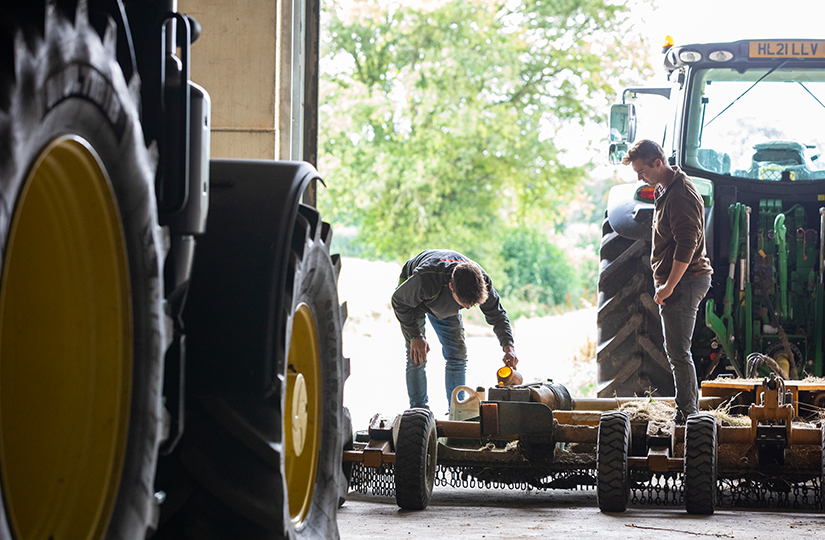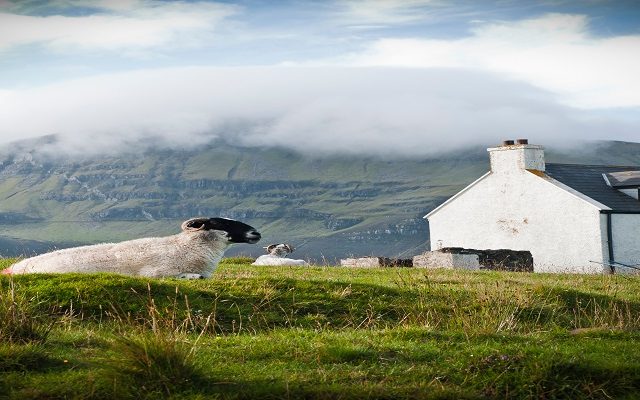Land Business Update | Week Commencing 22nd November
Welcome to our update on key land management, farming, planning and energy issues.
FORESTRY
Forest Market Report 2021 shows record breaking year for the forestry market
The report, which was launched by John Clegg & Co and Tilhill this week, reports that £200.4m of commercial forestry has been traded this year, a slight increase from 2020 total of £200.2m. Since last year, forestry values per stocked hectare have increased by 21% to £19,300 / stocked ha. This value increase is partly supported by the combination of a decrease in supply compared to 2020, with 10,400ha of forestry traded in 2021 compared with 12,500ha in 2020, and strong demand. This year, the market has attracted more commercial forestry buyers and financial institutions than ever before. A summary and copy of the full report is available on the Rural Hub.
FARMING
Launch of the Farming Investment Fund (FIF)
The Farming Investment Fund opened on 16th November 2021. It provides funding for farmers to buy items to improve their farm productivity and profitability in a sustainable way, with grants paying up to 40% of item costs. The funds are split into two:
- Farming Equipment and Technology Fund (FETF) (similar to the previous EU funded Countryside Productivity Small Grant scheme CPSG) – grant towards the cost of equipment/technology items. Maximum grant money is capped at £25,000 with a minimum grant value per application of £2,000. More items are available under this first round of the FETF than under the previous CPSG scheme. Application window closes on 7th January 2022.
- Farming Transformation Fund – this is funding for larger capital items, split into three grants: Water Management, Improving Farm Productivity and Adding Value, with only the Water Management grant being now open for applications (closing on 12th January 2022). The minimum grant you can claim is £35,000 with grant maximum capped at £500,000. The grant can be used for construction of water storage reservoirs, abstraction points, irrigation pumps etc.
Senior Associate Director and Farm Business Consultant Paul Dennison sets out in an article the 17 things to know about Farming Investment Fund grants. If you are interested in any items under the FETF, it is sensible to contact your local supplier as soon as possible to check stocks and ensure that the item you order would meet the specifications as detailed in the grant manual. If you would like any help with preparing an application, please do contact us.
Retirement scheme proposals in England (aka lump sum exit scheme) delayed
The government’s response to its consultation on this scheme has been delayed. It has not said whether this will affect the start date of the scheme, which was 2022, but still hoped that it will open then. This makes early discussions about retirement even more important; lots of principles and planning can be done in advance of scheme details, as issues such as how houses and / or compensation is treated could be more important than the lump sum.
Avian Influenza Prevention Zone (AIPZ) declared in the whole of the UK
Following cases of avian influenza H5N1 that have been confirmed in birds across the UK, an AIPZ has been declared across the whole country. From 23rd November, a legal requirement is in place for all bird keepers to follow strict biosecurity measures as detailed by the government. Measures for keepers of more than 500 birds include restricting access to poultry sites and workers to change footwear and clothing before entering bird enclosures. Owners with a small number of birds are also required to take steps to protect their birds. Some parts of North Yorkshire are also under a localised AIPZ, with all bird keepers having the additional requirement to keep their birds indoors. More information is available on the Gov.UK website.
Low emission manure spreading in Scotland
The Scottish Government is introducing new regulations from the start of 2022 which will phase out the use of splash plates to spread manure over five years and encourage farmers to use precision equipment instead. Band spreading techniques, such as a trailing hose, cut emissions by @ 30% compared with a splash plate. Injecting the manure into the ground reduces emissions more (by up to 80%). The policy should also improve use of nitrogen in manure, so reducing the need for additional nitrogen, so reducing nitrous oxide emissions and GHG emissions from nitrogen production. Ammonia, which is released when manure is spread, reacts with other gases in the atmosphere to form fine particulate matter, which humans breathe and it can shorten lives; it also forms nitrogen compounds in the atmosphere which can change ecosystems and biodiversity. This approach is not new – the Netherlands introduced it in 1997. The new rules are amendments to the Water Environment (Controlled Activities) (Scotland) Regulations 2011.
Profits rise on most types of farm
Farm profits rose in 2020/21 compared with 2019/20, according to Defra, as they recovered from a tough 2019 harvest. Farm Business Income, which can be considered as similar to profits, rose by 7% on cereal farms but was about 2% lower than in 2018/19. It also rose considerably on lowland and upland livestock farms. S&P comment: farm profits should be supported by the currently high prices for most commodities, although higher input costs, especially fertiliser, will reduce the boost. However, we do not expect current prices to be the norm and so businesses need to plan for lower prices and cuts in Basic Payments. Contact our farming team if you would like to run your business through our updated Basic Payments and farm profit calculators.

Environment
Natural Environment Investment Readiness Fund opens for its second and final round
This fund is designed to support nature projects in England to a point where they can attract private investment. In the first round, 29 projects were funded including developing an environmental impact bond to fund conversion of farmland to woodland in an area experiencing a growth in development and another to develop a new business model for monetise carbon sequestration, biodiversity credits and water quality from forestry. Grants of up to £100,000 are available and projects can be led by private sector organisations. Closing date for applications is 3rd February.
‘Public goods’ from nature: what would you want from an information product?
Viridian Logic, who are specialists at mapping natural capital and public goods, are looking to create a simple, low-cost data product to help landowners with farm management planning, Environmental Land Management applications and commercial trading. They would like your help in getting it right by asking six quick questions on what you think is important. The survey only takes 1 or 2 minutes so please click on the link and take part.
PROPERTY AND RURAL ECONOMY
Energy performance of rented homes in England and Wales
The government is expected, according to The Times, to legislate to require all privately rented homes to be rated EPC-C for new lettings from 2026 (a year later than originally planned) and all lettings from 2028. Fines will be up to £15,000. The cost cap on a landlord’s investment is expected to be increased to £10,000 (inc VAT) from £3,500. A ‘fabric first’ approach to energy improvements will also be introduced. S&P comment: we recommend that landlords start planning how to meet the requirements, which are highly likely to be introduced and be more rigorously enforced. In a separate announcement, the government is considering linking mortgages to green home improvements and could impose targets for lenders if insufficient progress is made. Mortgage lenders could be asked to disclose the energy efficiency performance of homes.






